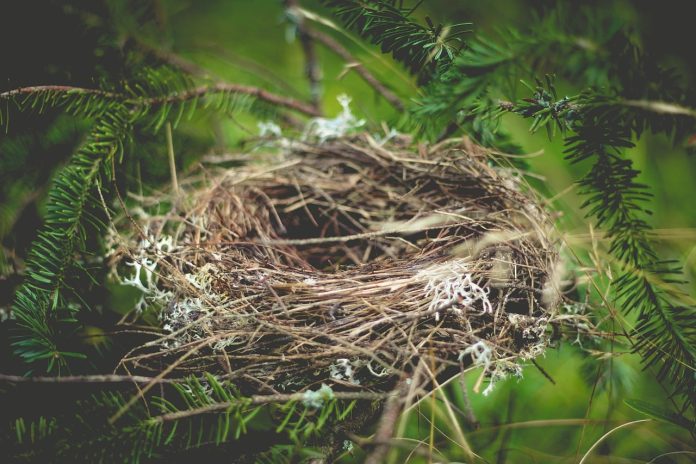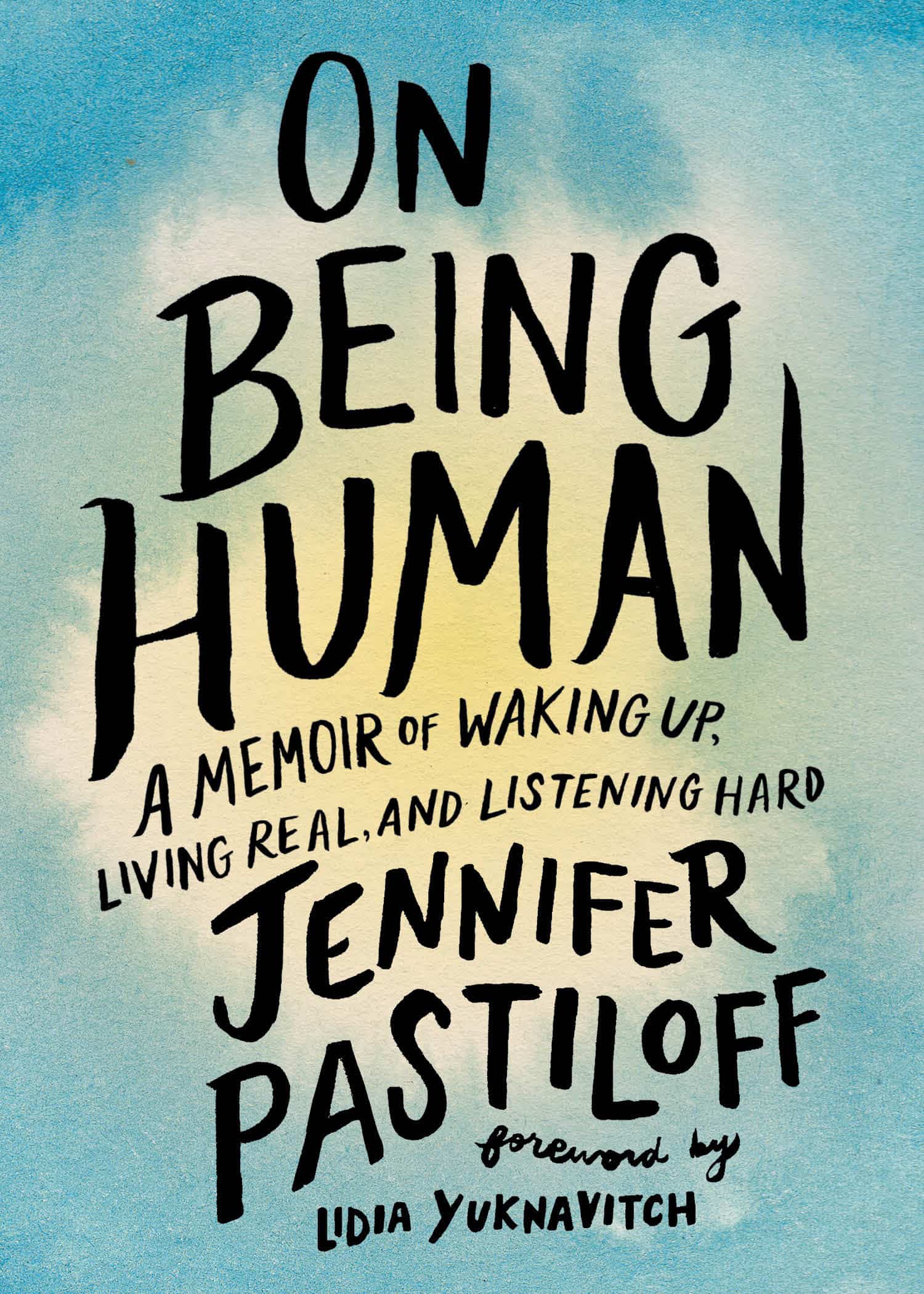By Claudia Hinz
I leave the doors to their rooms open. I have tried it with the doors closed but that only makes me sadder. With her door open I can see straight into my daughter Anna’s room from the kitchen. Not that I pretend she is about to come home, but it feels more normal. When I go into the girls’ bathroom, I see the note. Anna has stuck the yellow Post-it to a new roll of toilet paper. “Hello future Nicole and Anna!” she has written. “Signed Anna (hee hee!) August 16.”
I feel my face pinch, like I might cry. Here is my 18-year old daughter, poised on the threshold of an international adventure, heading off to college and a semester abroad, and she knew before she left that she would be different on her return, her future self already awaiting her arrival. She knew, too, that her older sister, a college sophomore, would be changed, although perhaps in less dramatic ways, the tough stuff, the logistics of being away and navigating college life figured out. And yet, there are the mountains of Organic Chemistry, Physics and Linear Algebra to scale, so how could she not be changed in just over three months? A mere fifteen weeks, the days counted down by Anna and her boyfriend, 5,000 miles apart. And what about me? What might happen to me in this time period? I have already been transformed, as if in an instant, or so it feels, unmoored, still a mother but robbed of the daily mothering. A mother who does not mother. Heart full but bereft. And yet, amidst the new startling quiet of the nest, a sameness ensues. Outside, the trees display their progression of colors. An Aspen spotted red and orange stands shoulder to shoulder with a green one that has yet to yield to the cold nights. The river floaters have gone home. The geese reclaim their hillocks in the middle of the river. A huge bird cranes its neck and gazes with unblinking eye.
“What is that?” I ask my husband.
“A cormorant,” he says. “You’ve seen them before.”
“Have I? But it’s gorgeous!”
A friend on a paddle board spots me on the river bank.
“Hey!” she yells. “Is your youngest in London yet?”
“Yes!” I holler back.
She is tethered to her board in a way that seems a little too cautious. This is, after all, a meandering river, not a raging ocean, but I get it: she is a mother with two chicks still at home.
“Well,” she says, digging her paddle deeper. “I hope you’ll find the beauty in the empty nest!”
A blessing, so casually offered for all to hear, even the homeless men bound lifeless in sleeping bags on the grass behind me.
The beauty, I think. I repeat this all the way home.
Across the street from my house a man has strung a slack line between two trees. The tightrope of the slack line is around three feet off the ground. To make the crossing more difficult, he has blindfolded himself with a red bandana. I watch as he inches forward, bare toes feeling for the line ahead. When I turn my back, I hear the thud of his body hitting ground.
When my children were in Waldorf School, they played with a wooden board with rainbow yarn stretched around the nails like a game of Cat’s Cradle in a wild Mondrian effect. Now I imagine those nails in a triangulated form, pinpointing our family’s locations, Oregon, Massachusetts, New York, England, a lopsided, nonsensical, non-shape, pulling east and further east. My children are on the wrong coasts. I am on the wrong coast.
In yoga class, our teacher brings us back and back again to our breathing, to the unavoidable here and now. She leads us in a meditation on gratitude, reminds us we have chosen to be here on the mat; we have gifted ourselves this moment. We lie in Shavasana, and she challenges us to consider what is holding us back from the beauty and change we seek.
A friend gifts me a sign for my writing desk. It reads, “You are enough.” While I unwrap it, she squints at me, her face reflecting my skepticism. She is not a mother, so she doesn’t know that it’s not the “enough” part I am leery of now. I am questioning the “You are” part. Who am I now? And it hits me that Anna is on to something with her sticky note. First, there is her direct address: she speaks to herself as if this new and future self is fully formed, awaiting her with open arms. I marvel at this almost recklessness, her present self flinging her arms open to a foreigner, a woman still unknown, a woman she cannot know while she is still nestled in her childhood home. Part of me thrills to think that I have raised this young woman, that I have been lucky enough to attend to the emergence of this brave being. I know she is afraid and yet, she stands on this threshold ready to feel it all, soul rattling sadness and joy and the days in between, to know that everything will be different and not be tempted to hold back.
Driving home from the grocery store I hear a story on the radio about Betty from Escondido, California. She speaks with the croaky voice of a grandma. She is 84. Four times a week, every week, she goes to trapeze school. She has been doing this since she turned 74. I am still driving but my brain is stuck. I don’t even know what to picture. A grandma sailing through the air? Someone plucking her midair to perch on a narrow platform, 50 feet above the safety net? Sounds like such a bad idea. “It is not that hard,” Betty is saying. “You just have to listen to the call.” The call? Is this someone on the ground who signals when to let go? Someone up above on that perilous perch who counts down for her and screams, “Now!”? Someone who is waiting to drag her back to safety? She is in a harness, but she is 84! If she falls, even guided by a long leash, into the net below, she is going to get hurt.
Betty’s fearlessness reminds of a Jewish saying: the whole world is a narrow bridge and I shall not be afraid. When I get home, I look up the expression online to see the words are those of a Hassidic Rabbi, Nashman of Breslov who lived in the early nineteenth century. Over the years scholars have expounded on Rebbe Nashman’s words. One writes that it is essential not to fear at all. Another scholar explains that the Rebbe was really saying we cannot frighten ourselves. And yet another adapts the Rebbe’s words into a song about how it is never too late to start over again. All the interpretations agree that the bridge crossing is fraught with fear and yet, we must cross. We must venture across in the ways that we can. There are, if we are lucky, sign posts along the way. An invitation at age 74 to try trapezee. Love notes a daughter has left like a trail of bread crumbs: “Mama, you are my biggest supporter and favorite cuddle buddy.” A postcard in the mail which says, “Thank you for taking care of me, and getting me settled.” And it is clear that there is more than one bridge. We might cross over and look back to see we have completed one crossing; we have carried others over with us, and now they and we are on different bridges, and yet, we are not alone. And perhaps, too, like Betty and Anna, each of us might take hold of our fears and decide to fly.
Claudia Hinz lives in Bend, Oregon. Her essays, articles, book reviews and fiction have appeared in The Manifest-Station, Brevity, The Boston Globe, 1859 Oregon’s Magazine, The Manifest-Station, Brevity, Flash Fiction Magazine, Bend Lifestyle Magazine and BLUNTMoms. Her first novel is out on submission. She can be found on Twitter @ChinzClaudia.
Jen’s book ON BEING HUMAN is available for pre-order here.


